Retro Replay Review
Gameplay
Mind Walker’s core gameplay revolves around transformation and exploration within the mind of a disturbed professor. In the first level, you assume various avatars—each perfectly matched to a particular landscape type—to build a continuous path toward a glowing crystal. Strategic avatar selection is key: choose the amphibious form for watery passages or the rock-skinned entity for rugged terrain. Along the way, hostile neural projections attack you, but their frequency decreases as you near your destination, offering a rewarding crescendo of tension and reprieve.
(HEY YOU!! We hope you enjoy! We try not to run ads. So basically, this is a very expensive hobby running this site. Please consider joining us for updates, forums, and more. Network w/ us to make some cash or friends while retro gaming, and you can win some free retro games for posting. Okay, carry on 👍)
The second stage shifts focus to stealth, timing, and auditory cues. You guide your chosen avatar through a pulsating neuron maze, hunting for the pyramidal “shard of sanity.” The ambient sound—subtle clicks and thumping pulses—serves as both guide and warning. One misstep onto a neuron at its peak causes instant death, making each move a heart-pounding test of patience and ear-based navigation. This level’s blend of audio-driven puzzle-solving and precision platforming feels both fresh and nerve-wracking.
In the final stage, Mind Walker introduces a Rorschach-inspired color-cycling puzzle. Here, you manipulate shifting inkblot patterns to realign the mental shard into its rightful place. The design cleverly ties the game’s thematic focus on perception and sanity into the mechanics themselves, requiring you to discern shapes as they morph in real time. It’s a cerebral challenge that rewards careful observation and forward planning.
Across all stages, the loops reinforce mastery: after completing a level you’re thrust back into earlier territory under subtly altered conditions. Enemy behaviors, obstacle timings, and puzzle configurations shift, ensuring that each revisit remains engaging. This looping structure prolongs the suspense and deepens your familiarity with the professor’s mental landscape, turning initial triumphs into tests of enduring skill.
Graphics
Mind Walker’s visual design is a striking blend of surreal abstraction and organic detail. The brain’s interior is rendered with luminous neural pathways, dripping synapses, and kaleidoscopic vistas that feel both alien and intimately human. Each avatar form pops with distinctive textures—slick scales, glowing crystalline shells, and sinewy flesh—making shape-shifting moments feel viscerally satisfying.
The color palette shifts dramatically between levels. The first stage’s dusky purples and electric blues create an atmosphere of tension and decay, while the second level’s neon reds and pulsating whites heighten the urgency of the neuron maze. In the Rorschach puzzle, muted grays give way to vivid pigments that cycle like living inkblots, underscoring the game’s psychological underpinnings. These visual contrasts keep the experience fresh and immersive.
Attention to detail extends to environmental cues. Crystals pulse softly when you’re on the right path, and neural clusters glow in patterns that hint at hidden routes. Subtle particle effects—floating synaptic dust and drifting color swirls—add to the sense of being inside a living mind. Even the death animation, a cascade of fracturing neurons, reinforces the stakes without losing artistic polish.
Performance remains smooth on modern hardware, with stable frame rates even during the most intense pulse-timed sequences. Loading transitions between chapters are minimal, preserving the flow of play. Overall, the graphics in Mind Walker strike a balance between stylized abstraction and technical finesse, delivering a memorable visual journey through the depths of cognition.
Story
At its heart, Mind Walker tells the story of a brilliant but broken professor who must venture into his own psyche to reclaim sanity. This premise—exploring inner turmoil as a literal battleground—sets the stage for a narrative that is as metaphorical as it is thrilling. Each level represents a different facet of the mind: the fragmented logic of the path-building stage, the chaotic intensity of the neuron maze, and the fluid insecurity of the color-cycling puzzle.
Though the story unfolds largely through environmental storytelling, small text logs and audio snippets reveal the professor’s memories and regrets. A fading lecture echo here, a half-whispered apology there—these touches humanize the journey, reminding you that behind the abstract puzzles lies a man desperate to fix what he has broken. The sense of urgency and vulnerability grows as you loop through the stages, hinting at deeper traumas that await full revelation.
Mind Walker avoids heavy-handed exposition, trusting players to piece together the narrative from visual motifs and scattered audio logs. The Rorschach puzzle stage, in particular, feels like a direct window into the professor’s fractured self-image, with each color shift reflecting shifting emotions. This subtle, player-driven storytelling keeps engagement high and invites multiple playthroughs to uncover every hidden clue.
By the time you restore the final shard of sanity, the game’s cyclical structure and thematic cohesion converge into a poignant catharsis. You’ve not only conquered puzzles and enemies but also guided a character through a truly personal odyssey. This fusion of gameplay and narrative makes Mind Walker more than just a series of challenges—it becomes a journey into the heart of human consciousness.
Overall Experience
Mind Walker offers a unique blend of puzzle solving, exploration, and psychological drama. Its pacing is deliberate: the initial level introduces mechanics with measured tension, the second ramps up intensity through audio-driven stealth, and the final stage delivers a visually striking test of perception. By looping these experiences with incremental changes, the game keeps familiar challenges feeling fresh and unpredictable.
The difficulty curve is well balanced. Early setbacks—getting caught by pulsing neurons or choosing the wrong avatar—teach you to observe and adapt. Later loops add subtle variations that test your mastery of each mechanic without feeling unfair. If you’re a fan of cerebral puzzle-platformers, the satisfaction of watching your tactics evolve level after level is immensely rewarding.
Mind Walker’s artistic ambition sets it apart from more conventional titles. Its abstract environments, shifting soundscapes, and minimalistic narrative converge to create an experience that feels both introspective and adventurous. Whether you’re drawn to the mind-bending visuals or the intricate gameplay loops, the game delivers a cohesive package that resonates long after you finish your first run.
For players seeking a cerebral journey through psychological landscapes, Mind Walker is a standout choice. It challenges you not only to solve puzzles but also to ponder the nature of memory, perception, and self-repair. While its abstract approach might not appeal to those craving straightforward action, anyone open to experimental storytelling and innovative mechanics will find a rich—and often haunting—adventure waiting inside the professor’s mind.
 Retro Replay Retro Replay gaming reviews, news, emulation, geek stuff and more!
Retro Replay Retro Replay gaming reviews, news, emulation, geek stuff and more!
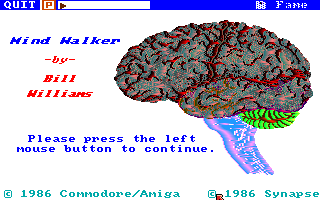
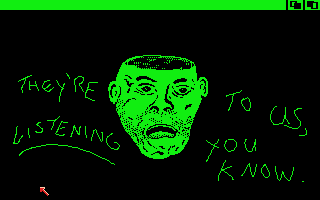
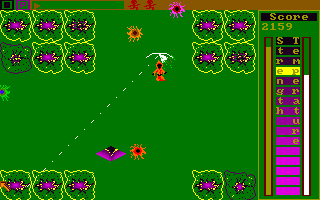
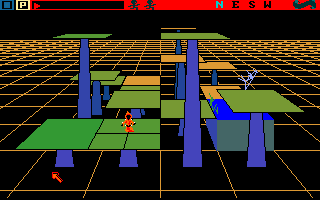
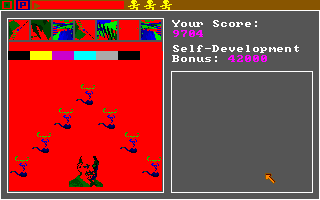
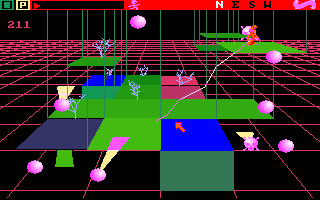



Reviews
There are no reviews yet.